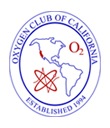
Symposium Speaker
Dr Scott Ballinger
 Dr. Ballinger has broad experience in the fields of cardiovascular and mitochondrial biology, especially regarding the influence of mitochondrial genetics, damage and dysfunction as it relates to disease development and susceptibility. His primary research interests are related to the role of the mitochondrion in disease development, with particular emphasis upon cardiovascular disease. Because mitochondria are essential for multiple cell functions, including energy production, cell signaling, cell growth, proliferation, and programmed cell death, his group hypothesizes that cellular oxidant production related to inflammation causes mitochondrial damage which in turn generates mitochondrial oxidants that further contribute to damage and dysfunction in cells important in disease development. In particular, his group is pursuing research in two areas: i) the impact of developmental exposure to CVD risk factors on adult mitochondrial damage and function, and how this influences cardiovascular disease development, and ii) the role of mitochondrial – nuclear interaction processes on individual cardiovascular disease susceptibility. A shared theme in both these areas is the potential influence of mitochondrial genetics on cellular response to CVD risk factors. It is hypothesized that mitochondrial genetic background significantly influences individual bioenergetics and response to cellular stress, and that these relationships were originally established during environmentally influenced selection events for mitochondrial function which conveyed increased reproductive and survival success during the global establishment of human populations during prehistoric times. Today, these relationships influence human disease susceptibility due to contemporary environmental challenges.
Dr. Ballinger has broad experience in the fields of cardiovascular and mitochondrial biology, especially regarding the influence of mitochondrial genetics, damage and dysfunction as it relates to disease development and susceptibility. His primary research interests are related to the role of the mitochondrion in disease development, with particular emphasis upon cardiovascular disease. Because mitochondria are essential for multiple cell functions, including energy production, cell signaling, cell growth, proliferation, and programmed cell death, his group hypothesizes that cellular oxidant production related to inflammation causes mitochondrial damage which in turn generates mitochondrial oxidants that further contribute to damage and dysfunction in cells important in disease development. In particular, his group is pursuing research in two areas: i) the impact of developmental exposure to CVD risk factors on adult mitochondrial damage and function, and how this influences cardiovascular disease development, and ii) the role of mitochondrial – nuclear interaction processes on individual cardiovascular disease susceptibility. A shared theme in both these areas is the potential influence of mitochondrial genetics on cellular response to CVD risk factors. It is hypothesized that mitochondrial genetic background significantly influences individual bioenergetics and response to cellular stress, and that these relationships were originally established during environmentally influenced selection events for mitochondrial function which conveyed increased reproductive and survival success during the global establishment of human populations during prehistoric times. Today, these relationships influence human disease susceptibility due to contemporary environmental challenges.
« Go Back





